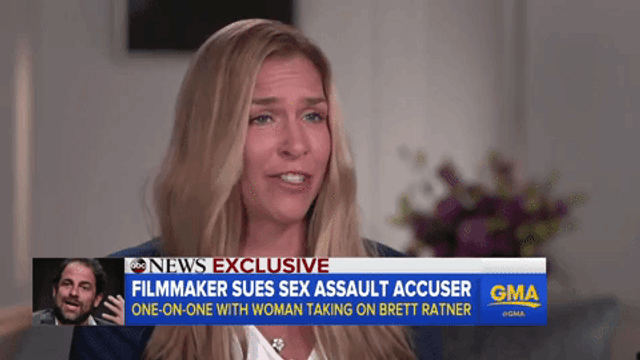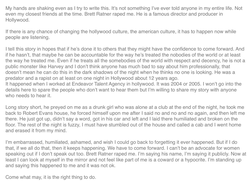Melanie Kohler

Melanie Kohler
Melanie Kohler is an American business owner who is being sued after she posted a Facebook post that reveals the time when Brett Ratner raped her. [0] [6]
Biography
Career
Melanie is a former marketing executive who worked in Los Angeles, California throughout the 2000s. [13]
Brett Ratner Rape Accusations

Black and White photo of Melanie Kohler.

The YouTube video of Melanie Kohler where she talks about the sexual abuse committed by Brett Ratner.
On October 20th, 2017, Kohler wrote a Facebook post where she opens up about being a victim of rape by famous Hollywood Film director, Brett Ratner, who allegedly sexually assaulted her in the mid 2000s. [4]Once she made the post, she began to feel some relieve, but after about an hour an half went by, she received a phone call by Marty Singer, Ratner's Lawyer. He told her that if she didn't
remove the post and if indeed the allegations are denied, that she will be sued by defamation by Ratner.
She deleted the post.
Kohler claims she met Ratner **** in a club some time around 2004/2005.
She says that Ratner “preyed on me as a drunk girl [and] forced himself upon me.”
On November 1st, 2017, the LA Times published a story about six women who came forward with accusations of Ratner sexually assaulting them. Ratner then decided to sue Kohler. [14]Among the women who stepped forward are: Olivia Munn and Natasha Henstridge. [14]The suit called the allegation “false, fabricated, and fictional,” and accused her of posting the account “maliciously,” and with intent to harm Ratner’s reputation. Ratner has disputed all of the allegations against him. [5]
Response Lawsuit
Since the LA Times publication, Warner Bros. cut ties with the filmmaker and will not renew its production deal with Ratner, and the fate of his company’s $450-million co-financing agreement beyond 2018 is unclear. [3]
After Kohler felt scared about coming forward, she decided to hire lawyer Roberta Kaplan, who helped dismantle the Defense of Marriage Act of 1996 with her victory in the 2013 U.S. Supreme Court case United States v. Windsor. [13]







